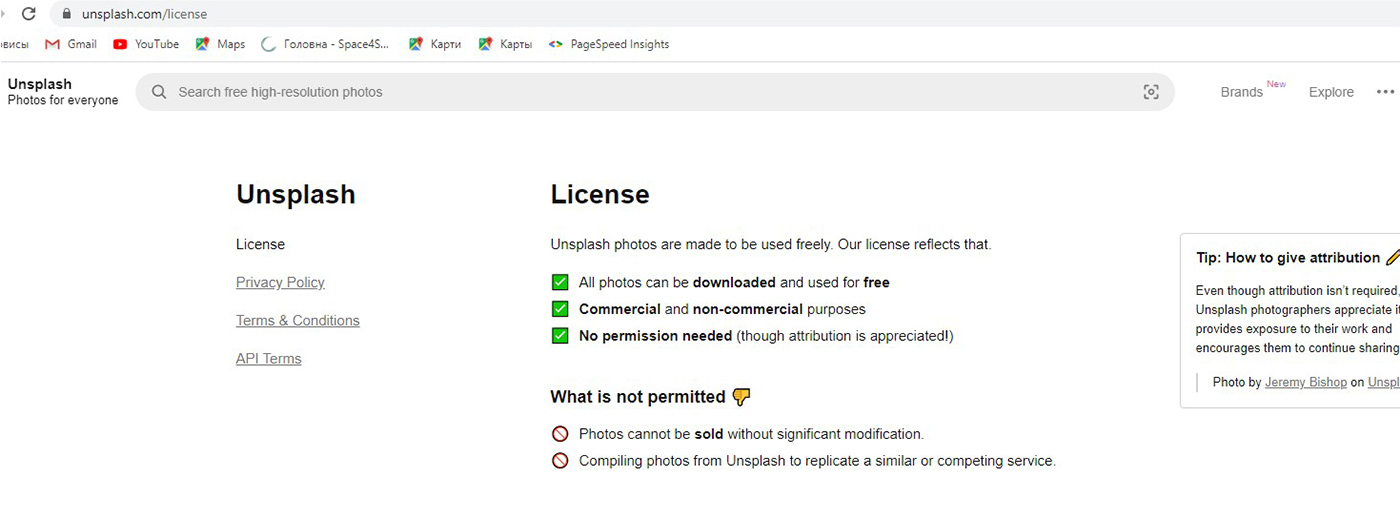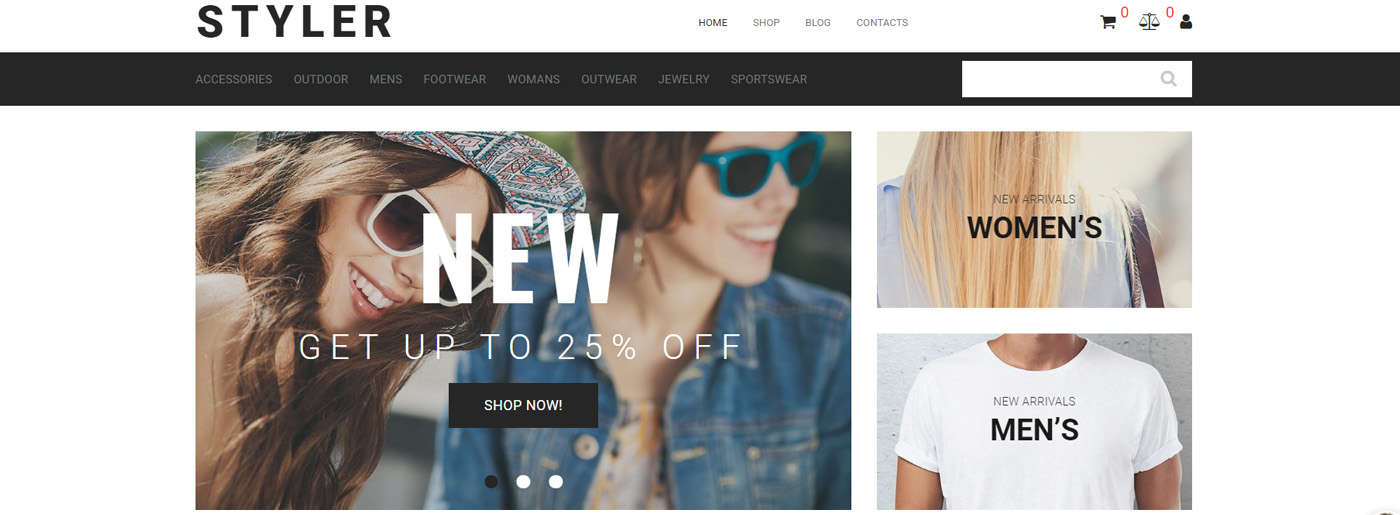Website Legal Requirements: Some Rules to Keep You out of Trouble
It doesn’t take much these days to start your own website. In just a few simple steps, and without ever learning a single word of code, you can use intuitive website builders to help you set up your online real estate within minutes. But creating a site comes with rules and regulations. Do you know your rights under copyright law? How about your responsibilities towards preventing plagiarism? And do you know all of the vast website legal requirements under information security and cyber law? Let’s figure it out together.
Basic Rules Related to Website Legal Requirements
If you get caught breaking any of the rules around web ownership, you may be in big trouble. Make sure you know all of the website legal requirements first. Here are eleven rules web designers should follow to avoid a lawsuit or hefty fine.
1. Present Information About Your Company
In case you present yourself as a reliable provider of some products or services, it’s essential to share some information about your company to build trustworthy relationships with clients and follow website legal requirements:
- company name
- office address
- place of registration
- registration number
- details of memberships
- contact details(email, phone number)
- VAT number of business, if there is such a one.
MotoCMS offers various website templates for you to share all the details with potential customers.
2. Check Whether Your Site Supports HTTPS
It’s essential to follow all the subtleties of transporting data over the network. Therefore you should check whether your website supports HTTPS extension. It ensures data security by encrypting information following the SSL standards. Such protection is necessary for commercial resources where confidential information about the user’s personal or payment data is used. Moreover, any website without SSL doesn’t have chances for a good indexing.
Besides, it’s a benefit for better ranking your website by search engines. To get an extended protocol with data protection support, you need to purchase an SSL certificate , set up the site, and redirect HTTP to HTTPS.
Also, keep in mind GDPR(General Data Protection Regulation) applying to all companies processing personal data.
Suppose you want to launch a website but don’t know what to start from. In that case, you can choose MotoCMS that provides free domain, free hosting and SSL certificates and automatically configures web servers to support HTTPS connections.
3. Consider Cookie Policy and Consent Notice
If your website uses cookies, you should warn visitors about it and check whether they agree on collecting and analyzing information.

Of course, it’s an excellent way to track visitors’ interaction with a website:
- which pages they browse
- how they interact with email newsletters and other content
- observe their preferences
- provide a secure service for online transactions, etc.
Still, users should be aware of all the conditions of processing their personal information.
4. Minimize the Risk of User-Generated Content
In today’s digital world, user-generated content is king. It can add new levels of engagement, credibility, and authority to almost any website. While you may decide to take advantage of it, hosting content created by others also opens you up to a myriad of risks. For instance, who owns the content once it’s published on your site? What if the content isn’t original, or what if it’s defamatory? Gossip sites are just one of the many categories of sites that have come under increasing fire and legal prosecution lately due to allegedly unlawful content.

Preventing plagiarism may not be entirely possible, but there are steps you can take to reduce the risk as a website owner. Start with developing clear and straightforward Terms and conditions displayed prominently at the point where your visitors will be uploading their content. This is where you can cover your bases and outline your website legal requirements beforehand. For instance, make sure the terms clearly forbid the use of any defamatory language in the content. You should also get users’ express consent of the right to display the content. Head over to the Ultimate Plagiarism Guide to learn more.
5. Obtain the Necessary Licenses for Content
Depending on the type of content you’re displaying on your website, you may be required to apply for specific licenses. It is an essential step towards preventing plagiarism and acknowledging others for their work. For instance, if you buy images for a website , you may need to license them from the supplier – that is, get their permission to feature it on your site.

Even then, it’s important to be aware that you may not be the only one to whom that photo has been licensed. Nor does a license mean you can use the photo however you like. When investing in licenses, make sure you read the fine print on any agreement between you and the supplier. Be confident on what you can use the content for, and on what terms.
As you start to do your research, you may come across certain licenses that require you to pay for the use of the content, while others are royalty-free. But even royalty-free licenses can have strict terms about purpose and frequency of usage. As part of your website legal requirements, it’s critical to understand what kind of licenses are necessary before publishing any content.
6. Follow the Exception of Fair Use
The safest way to stay out of trouble when it comes to copyright law is to assume that everything you’re using is protected. Remove any unauthorized content and investigate it. Always seek permission from the source if you have any doubt. That should ensure your website is always compliant with the law.
Occasionally, however, there will be times when you can use copyrighted content except for fair use. If the content benefits the public, you may have the green light to publish it straight off the bat. Beware, however, that there are still limits – four to be exact. Content is deemed fair to use if, broadly, its purpose is educational or scholarly, if it’s fact-based or publically available, if you’re only using a small piece of it, and if you couldn’t have purchased or licensed it.
The consequences for violation of the fair use exception can be hefty fines, so make sure you try to avoid that at all costs.
7. Act Quickly When You Suspect Violation of the Law
Every website owner should know their website legal requirements under copyright law. Understanding the Digital Millennium Copyright Act is an excellent place to start. It’s the U.S. law that ensures international copyright standards, as outlined by the World Intellectual Property Organization, is maintained. The copyright law generally limits the liability of a website owner for copyright infringement committed through any of its user-generated content, provided they respond quickly and as needed once notified to remove the content.
The Communications Decency Act (1996) can also shield website owners from being held liable for content that their users publish on their sites. Being the platform rather than the publisher makes a big difference. Still, there are limits. Acting quickly to comply with the law in the face of any suspected legal violations will help you minimize your liability in the end. If you need help, just check out some online legal services .
8. Website Legal Requirements – Prepare Yourself if You Get Hacked
Creating secure passwords or two-step authentications aren’t the only steps you can take to protect your site from being illegally accessed by outside parties. No matter how big or small, any website is vulnerable to being hacked , which means losing control of your content and potentially exposing your client’s confidential data.

Whether it’s through vulnerabilities in your site’s access or software or the result of malware in third-party integrations, hacking is becoming more and more commonplace. Especially as terrorists increasingly turn to the digital world to carry out their attacks, hacking is often the weapon of choice. Depending on what they post, for instance, if they upload defamatory content on your site, you could be held liable.
The dangers of getting hacked go beyond simply losing control over your content. If hackers are able to access confidential information about any of your clients or customers, you could also be held liable. That’s where information security and cyber law come in. Also, in some states like California, companies must notify individuals if a security breach has put their private information at risk. That could become very costly, very quickly.
Fortunately, cyber liability insurance is increasingly being offered as a way to cover this kind of data breach. From notifying your clients to paying fines, to covering the costs of any interruption to your business, insurance could be your best friend in the event of a hack.
9. Make Sure Your Website Has a Privacy Policy
Every website should have a privacy policy – a clear disclosure of how you’ll be using any data that you collect. You should have one not just because it’s part of the website legal requirements in most countries today, but because it helps build trust among your clients. Even if you’re just collecting people’s names or email addresses rather than their credit card numbers, reassuring them that you’ll keep their data private will give them the confidence they need to keep coming back to your site.
These days, most countries have strict rules in their information security and cyber law, including guidelines around privacy. In the U.S., there isn’t one law that outlines the specific requirement for a privacy policy, but there are several federal laws, such as the Computer Security Act (1997) and Children’s Internet Protection Act (2001), that together suggest you should have one.
There are also state laws that take these website legal requirements one step further. In California, for instance, the California Online Privacy Protection Act requires that any owner of a commercial website or online service(collecting information that can personally identify someone residing in California) must post their privacy policy somewhere clearly visible on their site. Play it safe and consult your state laws to see what is legally required for your site.
10. Follow the Rules for Website Legal Requirements on Selling Things Online
If part of your website involves e-commerce, knowing the website legal rules for selling online will help you not only save time and money, but also any potential legal hassles. It’s essential to have a solid understanding of consumer protection laws and e-commerce regulations in the United States.
For instance:
- Your contact details must be readily available for customers who wish to reach you.
- Prices and whether they include tax should be plainly stated.
- Your refund and cancellation policy should also be visible at the point of purchase.
These are just a few of the many guidelines that exist when selling things through your website. Making sure you follow them all from the beginning will help you avoid any legal troubles in the end.

11. Know Your Software Rights
Every website is powered by software. Whatever software you’re using, it’s important to know your rights with it. WordPress, for instance, is released under a General Public License. It’s a free software license that allows anyone to use, study or modify the software, so long as they meet the specified terms of the General Public License. As a website owner, it means that no one can take WordPress back from you or prevent you from improving or modifying it.
Most website owners may not spend a lot of time thinking about software licensing or whether their software is under General Public License. Still, it’s essential to know your rights around something that you’ll be using every day.
12. Avoid Spam Strategies
You won’t boost traffic by advertising messages that are sent against the will of the recipients but violate website legal requirements for sure. The users should agree to receive the newsletter, while the company should be able to document obtaining this consent not to receive a fine for spam.
It should be also noticed that sending spam violates the laws on the processing of personal data, at least contact information(email, phone number, address). Thus you need to be aware of email attack protection best practices and anti spam techniques .
Prioritize Fulfilling Your Website Legal Requirements
Starting your own website is exciting, but in a rush to get something up, make sure you don’t skip over all of the legal steps that should be in place. If you make compliance with the law your top priority from the start, you’ll be saving yourself time and money.




Always a huge fan of linking to bloggers that I like.
Yes, I love this place
Very nice post. I just stumbled upon your blog and wanted to say that I’ve truly enjoyed surfing around your weblog posts. After all, I will be subscribing to your RSS feed and I’m hoping you write once more soon!
What’s up, yup this piece of writing is actually good and I have learned lot of things from it regarding blogging. thanks.
Hi there, all is going perfectly here and of course every one is sharing information, that’s in fact good, keep up writing.
The data talked about within the report are several of the most beneficial offered.
Whoa! This blog looқs just like my old one! It’s on a totally different topic but it has pretty much the same layout and deѕign. Excellent choice of colors!
Wonderful story, reckoned we could combine a number of unrelated information, nonetheless genuinely really worth taking a look, whoa did one particular discover about Mid East has got much more problems at the same time.
best I have ever seen!
Hello! This post could not be written any better! Reading this post reminds me of my previous roommate! He always kept talking about this. I will forward this page to him. Fairly certain he will have a good read. Many thanks for sharing!|
I don’t know if it’s just me or if everybody else encountering problems with your site. It seems like some of the written text within your content are running off the screen. Can somebody else please provide feedback and let me know if this is happening to them as well? This may be an issue with my internet browser because I’ve had this happen before.
Cheers
I think this is among the most significant information for me. And I’m glad reading your article. But want to remark on some general things, The site style is ideal, the articles are really great : D.
Good job, cheers
I couldn’t resist commenting. Well written!|
fantastic points altogether, you just won a logo new reader. What may you suggest in regards to your post that you just made a
few days in the past? Any certain?
Nice read, I just passed this onto a colleague who was doing some research on that. And he just bought me lunch because I found it for him smile Therefore let me rephrase that: Thank you for lunch!
I guess the most important thing is to steer clear away from spam moderators by putting comments that actually matter. Anyways, I’ll be using these blogs. Thank you so much!
Cool blog! Is your theme custom made or did you download it from somewhere? A design like yours with a few simple adjustments would really make my blog jump out. Please let me know where you got your theme.
Cheers
Really good blog,thank so much for your effort in writing the posts.
Very good site,thank so much for your time in writing the posts.
Thanks for a marvelous posting! I actually enjoyed reading it, you happen to be a great author. I will be sure to bookmark your blog and definitely will come back later in life. I want to encourage you to continue your great writing, have a nice afternoon!
Excellent blog you have here.. It’s difficult to find good quality writing like yours nowadays. I truly appreciate people like you!
Take care!!
Oh my goodness! Amazing article dude! Many thanks. However, I am going through trouble with your RSS. I don’t know why I cannot join it. Is there anyone else having the same RSS problems? Anyone that knows the solution can you kindly respond? Thanx!!
You’ve made some decent points there. I checked on the web to learn more about the issue and found most people will go along with your views on this website.
I was pretty pleased to uncover this website.
I wanted to thank you for your time for this, particularly wonderful read!!
I definitely loved every bit of it and I also have you bookmarked to check out new things on your website.
Superb blog! Do you have any suggestions for aspiring writers?
I’m planning to start my own site soon but I’m a little lost on everything.
Would you advise starting with a free platform like WordPress or go for a paid option? There are so many choices out there that I’m completely overwhelmed.
Any tips? Thanks!
Right here is the perfect blog for anyone who wants to find out about this topic. You understand so much it’s almost tough to argue with you (not that I really would want to…HaHa).
You definitely put a new spin on a topic that’s been written about for years.
Excellent stuff, just excellent!
It’s difficult to find knowledgeable people about this subject, but you sound like you know what you’re talking about! Thanks